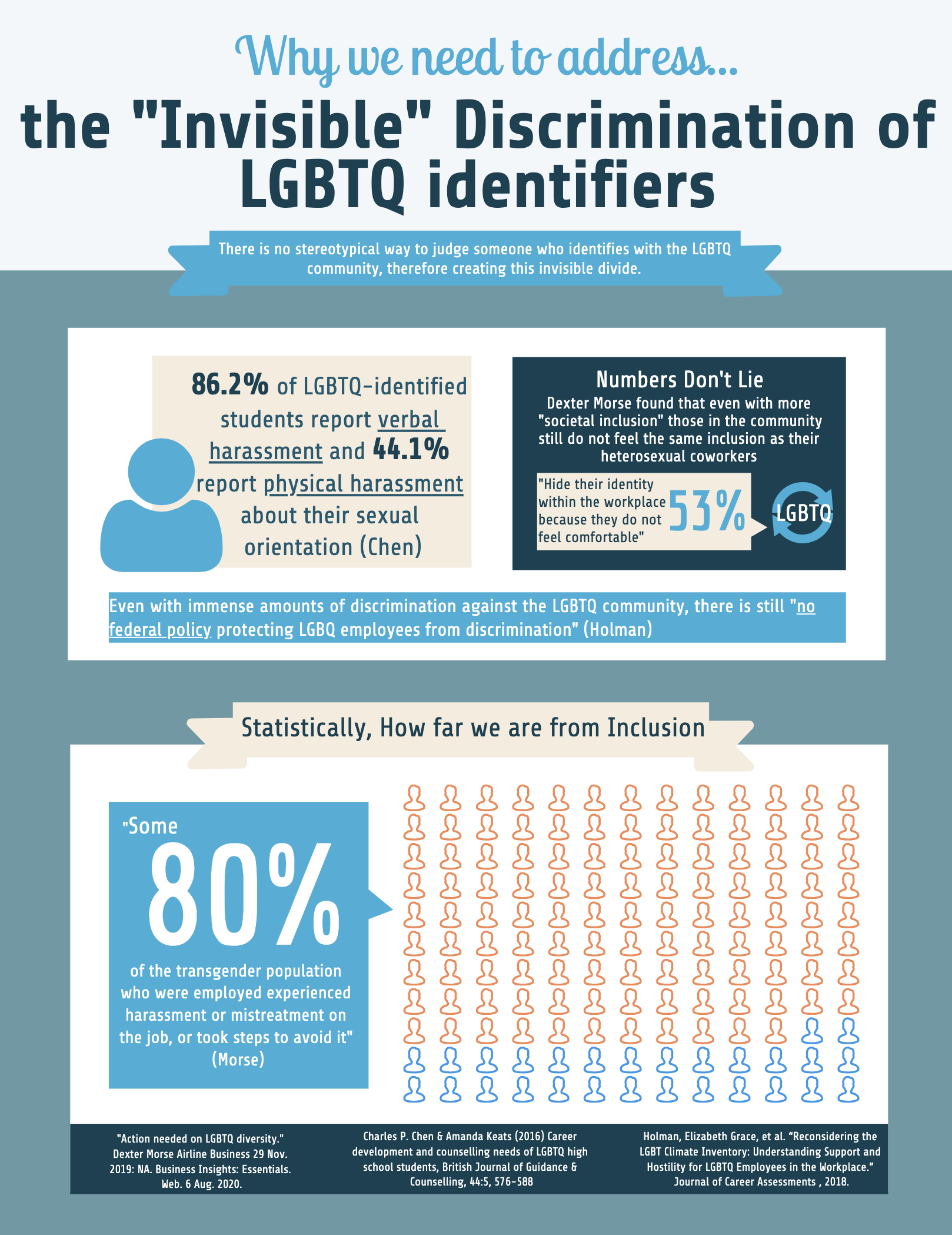From my unit 2 research, I found a lot of overlapping themes particularly on the lacking level of awareness language diversity has amongst other diversity competencies. Leading into unit 3 I wanted to focus on why this subject isn’t as openly discussed and how I could convince more of the public to listen to what was being said. I wrestled with what I wanted to use in my project in the end because of the vast research there was written on the topic. Eventually what it came down to was reflecting on the sources I’ve looked at from when I first began up until the end. For me that included revisiting the work I did from our unit 1 assignment, note-taking exercises, and some of the last discussion posts we shared as a class. From there the sources I focused on were those that initially caught my line of interest and kept the horizon open (without getting to specific or technical). The exercises we did throughout unit 2 really helped me organize my thoughts on the page which became very useful when it came to applying this to my own writing style. I found it easier to get words on the page because of the direct connections I made prior. The course also enlightened me on genres and specifically different writing styles. Some of the skills I learned we’re being able to critically analyze the sources and either pick out the content I wanted to use for my research or rhetorically understand the author’s purpose, target audience, and writing strategies.
For one, the work I did enlightened my knowledge of diversity and inclusion. Prior to taking this class I hadn’t fully appreciated the degree and significance conversations on this subject had. I learned ways I could directly take what I learned and apply it in everyday realities. Furthermore learning about language helped reflect on my own experiences inspiring to want and engage in more meaningful conversations with others. It also helped explain the thought process that goes behind communication and dig a bit deeper into how the brain works. What this course helped me do is practice my writing skills and find ways in which I could get more comfortable in doing so. The templates we learned from TSIS and familiar/ friendly style of writing in our blog posts eased the anxiety I would often get before writing. Also because I was writing a lot more than usual, I found myself get into the swing of things (flow) instead of dreading and waiting last minute to submit writing assignments as I did in the past. It felt easier to engage and enter other conversations which I found myself do a lot through the comments and feedbacks we would give to our peers and later help reflect on my own work. It made me excited to see other people’s posts and compare/ see where their lines of interest fell similar or different. Likewise, it reassured me I was on the right path and understanding of what was being said and why we were saying things in return. Regarding audience, the rhetorical argumentative analysis we did throughout the course exposed me to a lot of different writing strategies for targeting interest groups. It served me as inspiration for my later research having seen many examples and analyze their success. Similarily understanding my audience helped shape what I was eventually going to include in my final project. I did this by imagining myself with no knowledge of the subject prior and trying to capture their attention through the text style, visual media, and overall structure of my project.
Just as understanding target audiences helped shaped my research, it equally guided what I wanted to deliver and say in my final assignment. I was able to pick up different strategies for how to incorporate mixed media sources and use them to not only strengthen my argument but retain the reader’s attention and give them the freedom to look closer or further into subtopics. Finally, the greatest value I gained was becoming more confident in my abilities as a writer and public speaker because of the strategies I learned to communicate my thoughts across more effectively.

